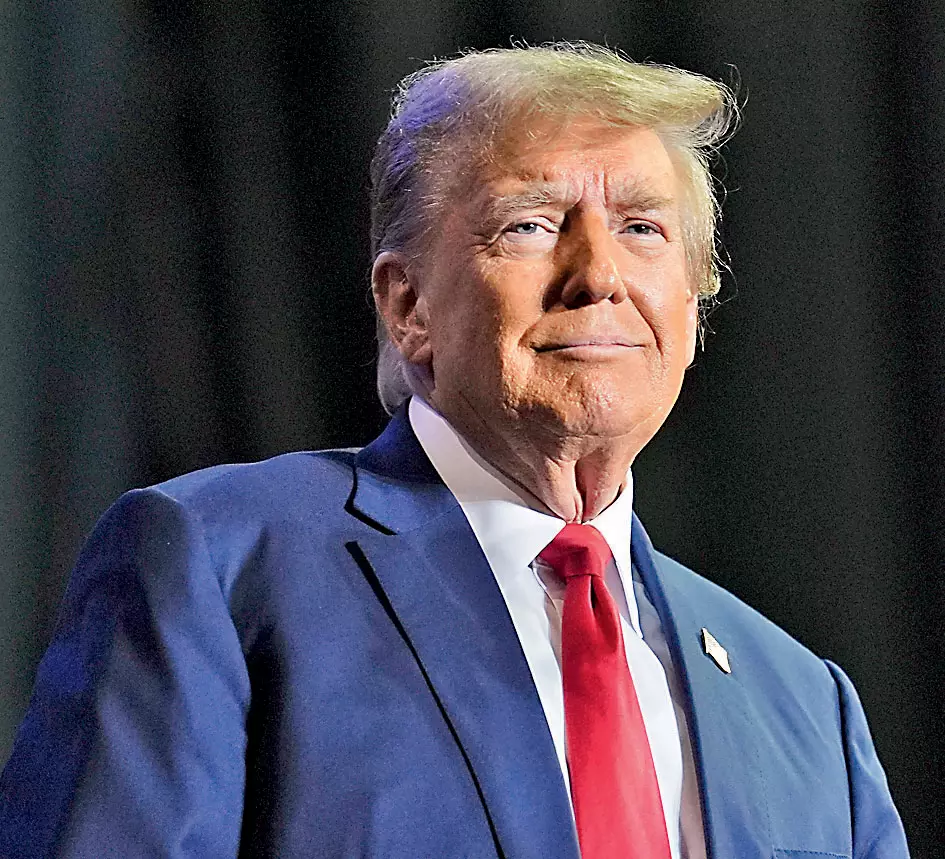Farrukh Dhondy | Of CLR, slavery & democracy in US: More ‘nastiness’ if Trump returns

“Are we but fragments of our memories
Our own and those we love and call our friends?
And do these fragmentary moments freeze.
Till some occurrence in our present tends
To melt the mood and feelings of the day?
Do some memories persist and others fade away?”
From The Quwaal’s Sawaal, by Bachchoo
The Marxist philosopher C.L.R. James, known to some only for his excellent writing on cricket, was a friend and guru. I wrote his biography after he passed away, in his eighties, in the 1980s. He had some unusual but inspiring insights and I have spent a lot of time these last few years wondering whether one particular one was valid or merely startling.
CLR, or “Nello” as his friends called him, maintained that the country or society closest to the vision of Karl Marx was -- no, not Russia or China -- but the United States of America.
He wasn’t saying that the American population was ideologically communistic or socialistic.
His analytical assertion was based on an assessment of its advanced economic capitalism, the democratic institutions which had eroded the divisions of class and the relative power its working class could exercise.
With that same working class threatening to elect someone like Donald Trump for a second or even a third term, CLR’s contention seems quite absurd. Very many estimates and some prominent columnists predict that Donald Trump will be elected President for a second term despite having to face 91 charges of all sorts, including the serious political one of fomenting insurrection. Some of these commentators take Mr Trump’s boasts about annihilating his opponents and “enemies” (read “critics”) when he gets into power and sweeping the institutions of America clean of anyone with opposing views to his own seriously. They also take seriously his boasts about ignoring the US Constitution if its stipulations stand in the way of his revenge or his vaunted policies. The word “dictatorship” comes to mind.
So, what would CLR have said if he had lived to witness the rise, defeat and resurrection of this monstrous American presence and its elevation through the very “democratic” processes that entered his calculation and comparison of countries? I am certain he wouldn’t withdraw the judgment, and would probably say that even if Mr Trump is elected he would be effectively blocked from doing any of the stuff that he brags and twitters about.
CLR’s contentions were devoid of any sentiment or emotional leaning. A descendant of African slaves transported to the Caribbean, he had no time for the “back to Africa” movement. He always said that as a result of that history the black people of the Caribbean and the US had inherited the Western intellectual tradition and become part of it.
I was once with him in his rooms in Brixton, south London, when three Afro-Americans paid him a respectful visit. Nello was sitting up in bed as he usually did, and the two men and the woman visitor sat in chairs around him.
I listened as the visitors broached the subject of the US government being liable for reparations to the descendants of slaves. The woman began talking about the cruelties of slavery and how there needed to be more writing and portrayal in the culture about the horrors of that history.
“Now listen”, Nello said. “I have shed my tears about slavery. Shall I tell you what I think was the most important thing that happened then?”
Of course, they were eager to hear what he was about to say.
“Slavery forced the Europeans to build bigger ships,” he said with a perfectly straight face.
The visitors looked at each other. They didn’t say anything. They just got up and left.
“Why did you say that sort of thing to these people, Nello?”
“Because I am fed up of hearing about slavery and because I wanted to teach them to look at the material side of history. What am I to say to them? I’ve said what I had to say about slavery in my history of the slave revolt of Toussain L’Ouverture in The Black Jacobins.”
“I’ve read it and I think they came to see you because they’d read it too.”
“You think they have? Well, then they know which side I’m on.”
Now, gentle reader, I’ve been to America several times on short visits. It all seemed familiar as the US has spread its soft power and aspects of its culture throughout the world and had certainly infiltrated the class into which I was born in India. We saw Hollywood movies through the years. We listened to American music, from jazz through pop, rock and roll, soul, folk and Bob Dylan.
Me and my friends and every school pupil of my generation were addicted to a weekly radio pop-chart called the Binaca Hit Parade, which played ten American hits in the reverse order of their popularity as calculated by the sales of the records in India. So, the best-seller would be played last by the DJ, Hamid Sayani.
And, of course, we were affected by American politics, in so far as we protested against the invasion of Vietnam by the US and regretted the assassination of President John F. Kennedy. Yes, America has spread its culture and its concerns, including all its nastiness.
The latter will undoubtedly get worse if Mr Trump isn’t trumped by the democracy that CLR spoke so determinedly about.

